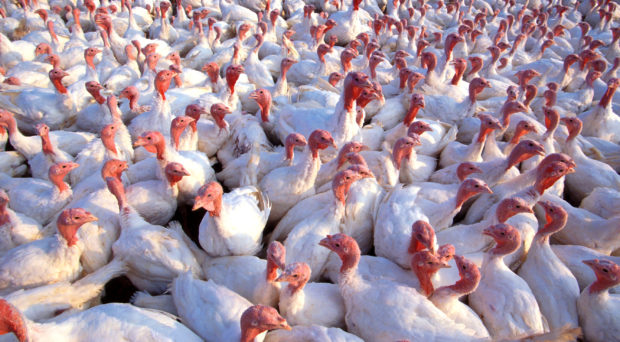
What is the One Health approach?
The One Health approach acknowledges that population health is dependent on interactions between animal and human diseases. In a globalized world, Humans and animals interact with greater frequency and intimacy. This interaction offers the opportunity for the emergence and spread of disease agents (chemicals, pathogens, etc.) that could adversely impact animal health, human health, or both. A multidisciplinary approach is required to address these questions.
The influenza virus has existed for thousands of years as a harmless virus in the gut of wild waterfowls but has recently become a poultry killer and a candidate for pandemic.
I am a veterinarian who has worked for over 30 years on animal diseases. Our institute is the national reference laboratory for about 40 animal diseases, some of which have zoonotic potential. I spent a large part of my career on avian influenza, especially, the famous H5N1, a virus of “our own hatching”. The influenza virus has existed for thousands of years as a harmless virus in the gut of wild waterfowls but has recently become a poultry killer and a candidate for pandemic.
It is reported that 61% of known pathogens can infect multiple animal species and 75% of all diseases that have emerged in the last two decades are of wildlife origin. Newly emerging and re-emerging infections are now recognized as a global problem, and 75% of these are potentially zoonotic.
Emerging infectious disease events are not simply about pathogens jumping species barriers. They are made of complex relations that involve socioeconomic and socio-political drivers and their consequences extend beyond the impact of the disease itself.
One of the most significant changes in our society has been the “livestock revolution”, whereby the stock of food animals, their productivity and their trade has increased rapidly to feed the fast expanding and urbanized human population. This has led professionals involved in both animal and public health to recognize “veterinary public health” (VPH) as a key area for their activities to address the human-animal interface.
Moving forward with veterinary public health
Most veterinarians contribute, directly or indirectly, to public health goals and outcomes. The One Health approach acknowledges that population health is dependent on the biological interactions between animal and human diseases in a social and ecological environment.
Humans and animals interact with high frequency in a globalized world. Emerging zoonoses are only one of a number of consequences of intensive livestock production systems, together with antimicrobial consumption and resistance; disruption of nutrient cycles; and greenhouse gases emissions.
To combat these issues a multi-disciplinary approach is required. The upcoming “Sciensano” institute will soon regroup the Scientific Institute of Public Health (WIV-ISP) and the Veterinary and Agrochemical Research Centre (CODA-CERVA) in Belgium. Both institutes will join forces to better understand human and animal health through scientific research aiming at enhancing the well-being of all.
A transdisciplinary approach
Such networks should not be limited to scientific experts, but also be open to policy experts, local knowledge, practitioners, citizens and all relevant stakeholders.
EcoHealth examines changes in the biological, physical, social and economic environments and relates these changes to human health. One Health represents a call for health researchers and practitioners at the human, animal and environmental interfaces to work together to mitigate the risks of emerging and re-emerging infectious diseases.
There are, however, socio-political, economical, ethical and legal challenges. The implementation of One Health/Ecohealth concepts must therefore benefit from transdisciplinary processes between policy, science and practice. Such networks should not be limited to scientific experts, but also be open to policy experts, local knowledge, practitioners, citizens and all relevant stakeholders.
This approach is challenging as the traditional “silo” thinking must be replaced with broader perspectives on the continuum of health. Equally we must be careful to not create big One Health/Ecohealth institutions resulting in building fences rather than creating openness to collaborations. This may be overcome by focusing on open, collaborative networks like Communities of Practice, which are less institutionally bound and more flexible and can be open to newcomers, ideas and approaches.
In addition, inter-and transdisciplinary education must facilitate this collaborative work. Encouragingly, more and more veterinary schools now have specific VPH educational programs. Hopefully, national and international funding agencies will keep investing in this holistic approach.
A One Health special issue
A special issue of Archives of Public Health has been dedicated to One Health in order to help us to better understand the connections and interactions between human, veterinary, farming strategies and climate change.
For this special issue, we have identified four key topics for which both public and veterinary health should be considered in a globalized view: emerging infectious diseases; antimicrobial resistance; interaction of human health with farming systems; and importance of wildlife.
In addition, an opinion paper summarizing the conclusions of the OneHealth/EcoHealth workshop organized in Brussels (October 2016) has also been included in this special issue. All these articles have also given attention to the translation of the results into public (health) policy, actions and possible interventions.
Comments